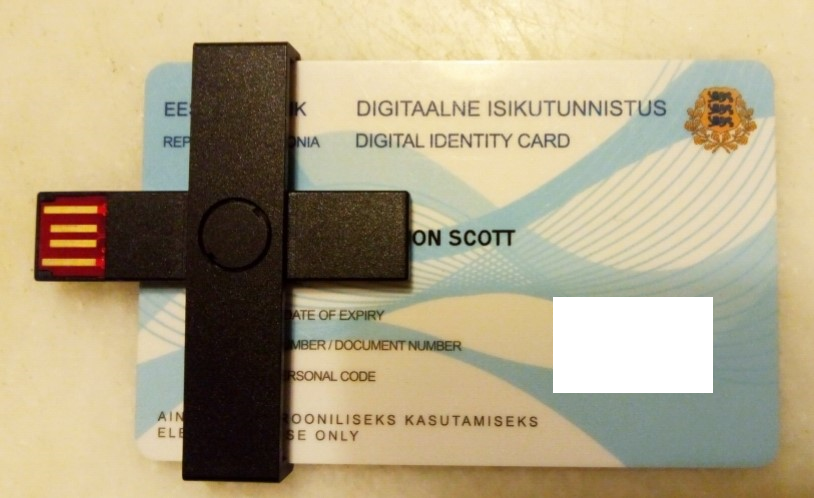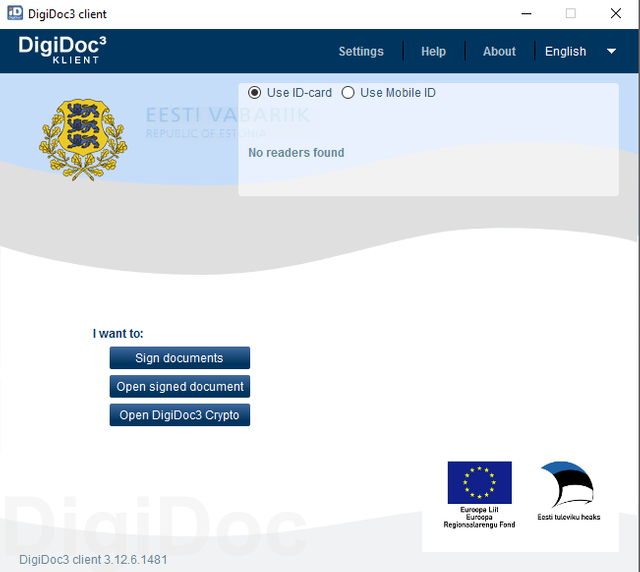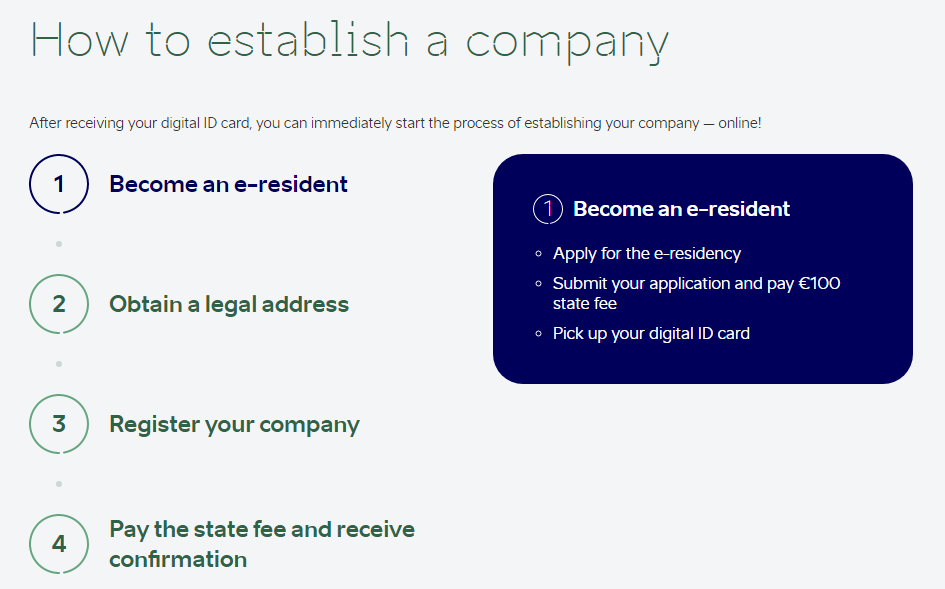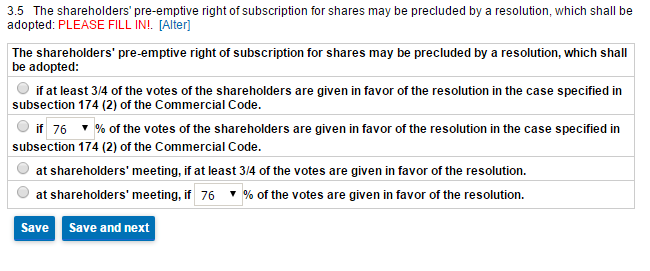I wanted to share my on-going experience as an e-resident of Estonia, which is a program that was launched by the Republic of Estonia in late 2014 to allow non-citizens access to some of the digital services enjoyed by citizens of this quaint Baltic nation, including formation of a business and access to banking, identity management and digital signatures, and tax services. This initiative forms a core part of Estonia's objective to be a digital society, embracing technologies of the future in governance.
What I'll do here is talk a bit about how I became an e-resident and how I recently started my own limited liability company (Osaühing) in the EU completely online and in less than an hour. Nothing here is intended to be legal or financial advice, of course, but just a simple recounting of my own experiences.
Here's a great photo of Tallinn: (No, it's not my own photo. Just a free one from Wikipedia)

First, some interesting news
The E-Residency program announced new and exciting changes recently at the Latitude 59 conference in May 2017, which now allows e-residents of Estonia to enjoy borderless digital banking. I was super-excited about this until I found out that US citizens and citizens of certain high-risk countries are barred from participating in the digital banking project! For US citizens and permanent residents, you guys (me included, unfortunately) aren't allowed to get a digital bank account in Estonia because of the onerous and ridiculous rules placed upon foreign banks under FATCA.
How I became an e-resident
I applied online by submitting a photo of my passport and a copy of a passport-sized photo, along with answering a few simple questions on the application form. I paid the 100 Euro fee and I was shortly afterwards notified by email that my application was being processed by the Estonian Police and Border Guard Service. After 6 days, I received an email notifying me that my application was approved and then 2 weeks later I was invited to set up an appointment at the Estonian embassy to collect my card. It's required to pick up your card at an Estonian embassy or consulate, because they collect some biometric information.
The card came in a cool little package with this neat spy gadget thingy that allows the smart card to be plugged into a USB port on my laptop. There's also some software to download, which then allows you to digitally sign and encrypt documents, as well as use the card to login to your online portal for government e-services.
A photo of my card:

A screenshot of the ID software without my card reader plugged in: 
How I started my business online
If you're considering starting a business in Estonia, you should visit the Entrepreneur portal to follow the various guides and information available there. There are annual filing requirements for businesses, as well as special tax and licensing/registration obligations depending on whether you have employees or if the business has revenue above a certain threshold. Again: I'm not providing any advice on what's legal or required for your specific situation here.
It's really about this simple:

The first thing I did was make sure that my company name wasn't already in use by another company in Estonia and I also researched the EMTAK code, which classifies the type of work my company is involved in. Both of those resources can be found at the e-Business Register. Once I knew I was good to go, I then contacted a service provider to setup a legal address in Estonia and designate a person resident within the EU to receive documents on my behalf. I signed the service agreement digitally with my e-residency ID card and then moved on to the company registration portal.
I plugged in my ID card and logged into the company registration portal and selected "Submission of application" in the menu shown below. If you have to save your application for completion later, you can access it again at "Opening page."
Screenshot of the company registration portal navigation menu:

I followed the prompts to fill in the company name, address in Estonia, and designate business' managers/owners (including the name of my authorized contact and her Estonian address). The form is very user-friendly and doesn't allow you to proceed if you make any mistakes. It's such a user-friendly site, even the company's articles of association are written for you to fill in step-by-step, if you don't have your own articles written in advance.
It's literally as easy as multiple-choice, as shown here:

Once you supply all the required information for the application, you can move on to filing the petition in step 2 and then digitally signing the documents with your ID card in step 3. I needed a designated person to receive documents for me, so that person also had to digitally sign the forms, as well. Finally, I paid the 190 Euro fee to the Estonian Treasury and once the payment was processed, I had my very own business in Estonia!
Now, there were a lot of steps involved in this. But, aside from traveling to the Estonian embassy to receive my e-residency card, the process of becoming an e-resident took maybe 15 minutes to complete. I was pretty sure what type of business I wanted to set up in advance, but the information provided at eesti.ee made the decision-making process extremely simple. Finally, once I had my legal address and designated contact in place, I spent an hour filling the forms out at the company registration portal. It's pretty impressive and I'm extremely happy with my virtual residency in Estonia.
Fantastic! I have been following the e-residency Estonian program for quite a while now and this is the first time I hear about someone who has made all the steps. Is it too soon to ask what type of business you are going to do?
Downvoting a post can decrease pending rewards and make it less visible. Common reasons:
Submit
I'm a technology consultant, so I do programming mostly. I'll share on here once my website is up and running. I'm very busy with clients right now, which is good...but my website desperately needs attention, as well! I'm planning to go to Estonia next year for Latitude 59, at which point I'll be able to open a bank account in-person.
Downvoting a post can decrease pending rewards and make it less visible. Common reasons:
Submit
Sounds exciting :) Good luck! Will be following!
Downvoting a post can decrease pending rewards and make it less visible. Common reasons:
Submit
This is pretty damn fascinating...I remember hearing about the program and how Estonia has the fastest internet per capita ratio in the world. What kind of business did you start? Does your business have to make a certain amount of money to stay registered?
Do you ever plan to go visit your address?
Downvoting a post can decrease pending rewards and make it less visible. Common reasons:
Submit
No, the registration is a one-time thing. If/when I make above a certain amount or hire employees, I'll need to register for a VAT number. I do plan on going to Tallinn next year for a bit.
Downvoting a post can decrease pending rewards and make it less visible. Common reasons:
Submit
I hear the women in Estonia are smoking hot.
Downvoting a post can decrease pending rewards and make it less visible. Common reasons:
Submit
Yup--this is what I am talking about! So what are the benefits of having a business set up there? Are the taxes different? How are they about crypto and taxes? And what do you have to do at the end of the year to appease the U.S.
Downvoting a post can decrease pending rewards and make it less visible. Common reasons:
Submit
Some of the main benefits for me are the digital elements of running a business from Estonia: being able to digitally sign and electronically submit all my forms online is very useful, because I'm a digital nomad. But even for people who still live in the US, it's actually much cheaper to start your business in Estonia: the fees are lower (and fewer) and hiring the services of an agent to represent the business was cheaper, as well.
There's also a lot of great benefits that come from being based out of the EU. For me this is especially beneficial for the eligibility to apply for a Startup Visa to live in Estonia.
Estonia has a flat tax and doesn't tax companies unless they pay dividends or have profits above a certain threshold. As for cryptos, the Estonia Supreme Court held last year that all cryptocurrencies and blockchain tokens are subject to some really dumb rules, but I still say they're better far than the US on this issue. And for the US taxes and stuff, the typical rules apply for reporting worldwide income and bank holdings above a certain threshold.
Downvoting a post can decrease pending rewards and make it less visible. Common reasons:
Submit